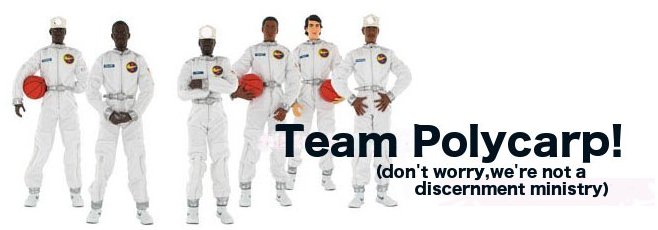Through this latest season of political entertainment, I am learning the word prophetic has a different meaning for those outside of the charismatic (usually right-wing) church. Prophetic for us is getting personal words about a person's destiny, or getting a dream from the Third Heaven, or ushering in revival. Prophetic for the left is Martin Luther King. Prophetic for the left is taking up the cause of economic justice, and speaking to political powers-that-be to get that justice. It's Ghandi, it's Farrakhan, it's the old testament prophetic stance.
Before my Regent University conservative republican-contract with america "democrats are devilcrats" days, I was a left wing liberal. I dug Cuomo before I dug Jesus. Not that I am a left winger now, I'd never vote for Hillary or Kerry, but I do thing Obama is the man of the hour and can make historic choices for the betterment of the USA as president.
Check out this video-- I like the part where he speaks about the Pope calling Iraq an immoral war.
I wonder if God would bring the left-wing and right-wing prophets into one camp, what would happen?

3 comments:
Hmmm. Interesting video. The reporter seemed a little timid.
Those are interesting thoughts on prophesy Roy. And I agree, this guy comes off more in the biblical mode of prophesy. I was going to say OT, but in the new we have John the Baptist and John the Relevator who also spoke against injustice.
The only thing that causes me to think about this though, is prophets were usually speaking against the church or chosen nation of God. People were even upset that Jesus wouldn't speak out against Rome. I guess if we are coming from the worldview that the US is a Christian nation then that would make sense a bit in speaking out against politics.
I think that is where some of the difference in thought begins though.
The tension for me, and where I struggle is in the identity of the church. There really is none for the church at large in the US. There are so many facets from lovey dovey evangelicals, to militant prophets. Is it missional evangelism or bull horns on street corners? Is it healthy & prosperous 10,000 member multi-site campuses like Northpointe and Mars Hill or storefront monastic communes in the inner city?
I think the world doesn't know what to make of who Jesus really is. Is he the Jesus of Martin Luther King, Bono, John Hagee, Paul and Jan Crouch, Brian Mclaren, Mark Driscoll, Steve Oberg...Roy ... Jason... Dave...???
It is a confusing dilemma for me honestly. I see huge parts of Jesus in everyone... I guess I'm waiting to Jesus as himself.
I think our witness with the world will improve greatly when we start to get on the same page even a bit.
Yeah I agree with that but there are vast theological / political differences between all these camps: what may unite catholics and evangelicals (pro life issues) tends to divide the more radical left who practice social justice.
A lot of the church seems to unite on issues of fighting poverty, but then the politics is divided on how to actually fight poverty: Bono says give money, the evangelical right is less enthusiastic about pouring money into africa if it comes through the american tax payer.
It's like, maybe we are better in these tribes/ sections/denominations, where at least more cohesion brings result-- the right hand does not need to see what the left hand is doing.
I think we need to understand what Christians need to unite and what they have the freedom to divide on. The gospel of Jesus must remain core for all people that would call themselves Christian. However there are also many implications of the Gospel that are part of having a biblical worldview (i.e. social justice, environmentalism, gifts of the Spirit, etc). What becomes the problem is when people minimize the Gospel and therefore "preach another Gospel" (Gal. 1:6-9). Likewise many people Charismatic and Conservative want to add to the gospel to make it bigger than it is (spiritual gifts, dress, music, circumcision , etc). We must understand the clear distinction between the gospel and its implications. The implications are worthy of much study, wrestling, and thinking thorough how to apply them but they are not the gospel and too often believers make these implications points of fellowship and division which they should not. We should recognize the implications of the gospel for what they are. Additionally this also lets the church have unity without attempting to create some sort of forced catholic uniformity.
Post a Comment